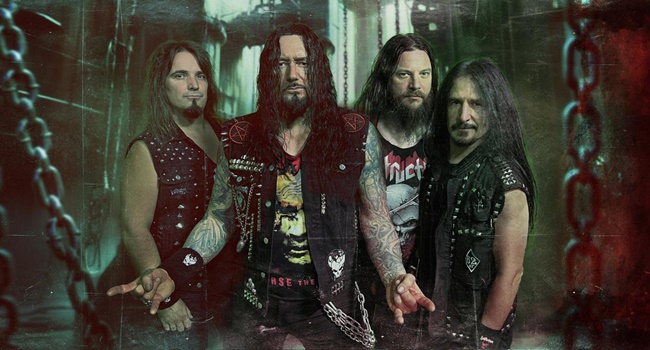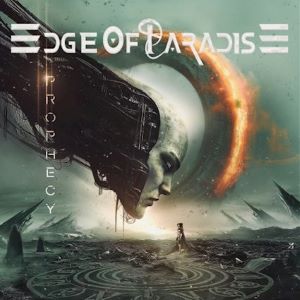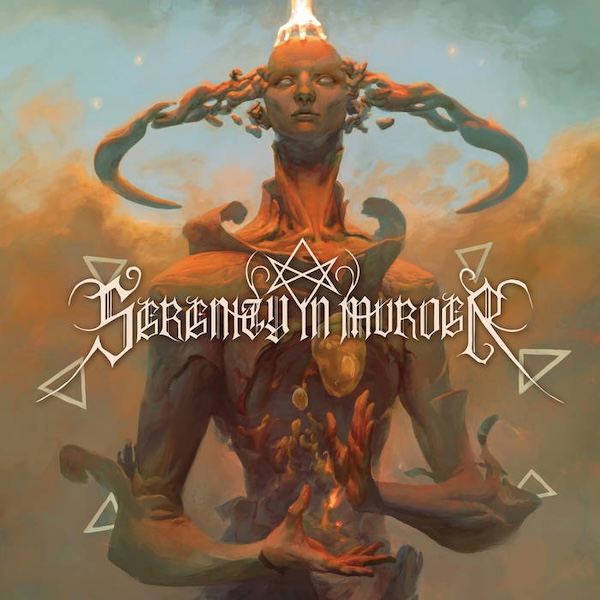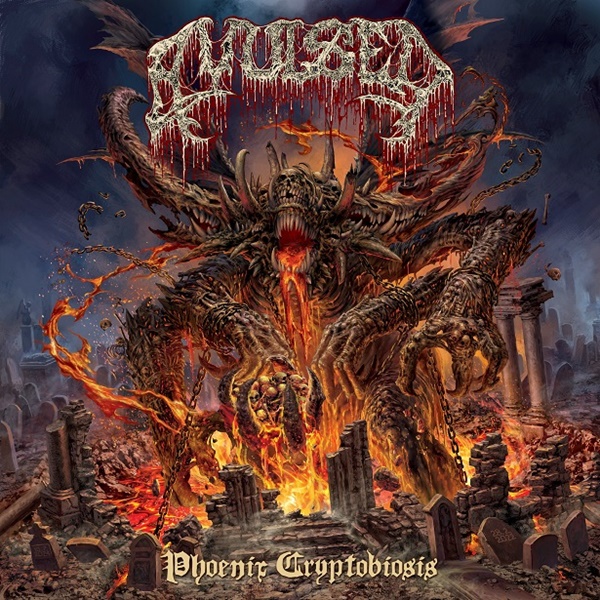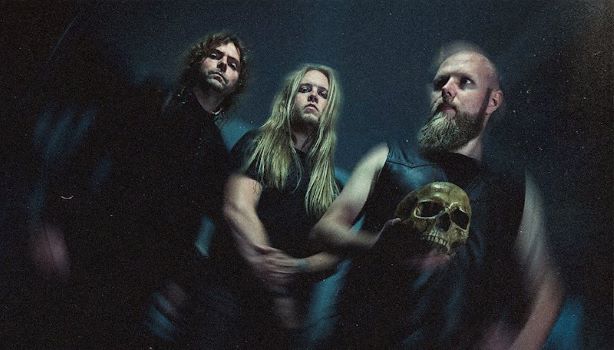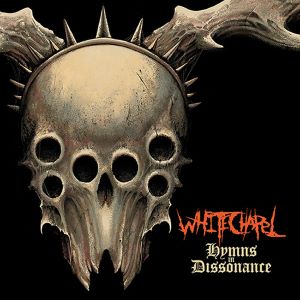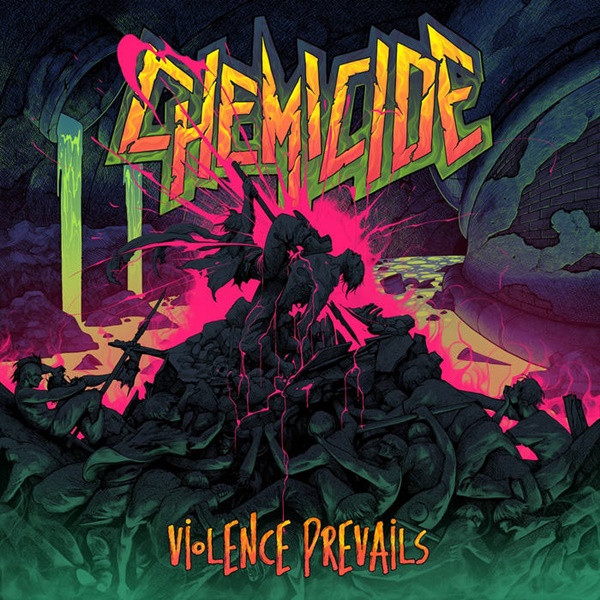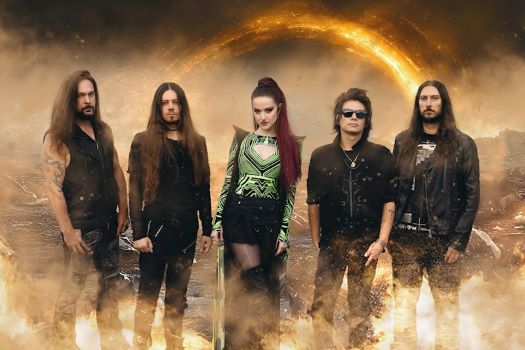Photo: Jennifer Gruber
No doubt faithful readers of this site are well aware of the long, rich discography present in German thrash mainstays Destruction. Their latest album Birth of Malice keeps the songwriting sharp – unleashing more anthems, rippers, and aggression on the vocal/musical fronts to keep those metal maniacs happy, clamoring for more. Never at a loss for words, we caught up with bassist/vocalist Schmier for a talk about the teamwork behind the latest album, how the band resonates with people from all cultures, paying tribute to Accept and their importance in the scene, the release of a band documentary, how his mother’s belief in his music endeavors shaped his career, NWOBHM album talk, technology / AI discussion, and future touring plans.
Dead Rhetoric: Birth of Malice is the latest Destruction album. How challenging is it for the group this deep into your career to develop fresh ideas that not only satisfy yourselves, but also gain appeal to your followers, especially ones who have been with you since the early days?
Schmier: We have a great team together. Over the years we have been increasing the quality of the records. For this time, we took extra care that this would be a great album. We just had our 40th anniversary, so we knew that this album has to kick ass. It was a great process working on this. I realized during the process that this is probably the best lineup we’ve ever had. People may say, ‘oh no – it was better in the 80s’, I’ve done that, but it feels satisfying now in the studio the way that we work. Everything is conceived, the teamwork flows. It was an easy record to make because we came from tour, and we started writing. Even if people think thrash metal is very limited, we have a lot of fresh and new ideas on this album. If you compare it to the first Destruction album, it sounds different, but I was 17 on the first album and now I’m turning 60 soon so, we have a lot of growth and experience in between all those years.
For us it’s very exciting to still play thrash music. I just hope I don’t get tired of it, because thrash metal is my life.
Dead Rhetoric: Songs like “Scumbag Human Race” and “A.N.G.S.T.” definitely leave strong impressions through the lyrical content. Do you believe that social / political turmoil and thrash metal go hand in hand, especially in terms of the Destruction way of songwriting?
Schmier: They do. In times like this, I wish I would write about unicorns, drinking, women, and love. I have to write about this, it’s in the DNA of Destruction. We have a lot of crises going on in the world, and a lot of wars. It’s not nice to have a mirror in front of your face, but it’s in the Destruction DNA to write about these things. A lot of stuff that bothers me, it’s stuff that I see when I tour the world. I have to write it down – and it’s also therapy for me. I think about it; I scream it out. The best example is when we released the second single for the last album Diabolical, it was the start of the war in the Ukraine a few years ago. The song is basically a mirror of society. It’s too real. It is what it is. For Destruction, there is no other way.
Dead Rhetoric: Do you feel you become a voice for the people – the average person and the poorer people as well?
Schmier: Yeah. We get a lot of compliments for the lyrics. There are a lot of people that think alike. The biggest gift is when a fan can write to you to tell you that this album got him or her through a difficult time. I hear this a lot. There are people out there who care a lot about social criticism. We have a lot of fans in rather poor countries, it’s interesting for them to see somebody that lives in a rather first world, rich country like Germany, still has a lot of problems and sees them around the world. We are not ignorant, the way I see the world, I tour the world, and I talk to the people a lot, I go to a lot of interesting countries. There were even times during the Cold War when you would play in the United States and then go to Russia next. Russia and America seem to be best friends again. I have the privilege to see so much.
Just playing in Dubai, that was super interesting. What impressed me the most was the different cultures that live in this Arabian culture. At the show there were Russians, Americans, Arabian people, people from India, people from Germany – it was a crazy amount of people from all over the world at this show in Dubai. It’s something I love to see about metal. It unites the world – and you also talk to different people. It’s quite interesting what our leaders do, it’s not necessarily the opinion of the common people. Of course there are fanatics, but in general the common people don’t agree with most of our leaders. That’s something I see all around the world.
Dead Rhetoric: You pay tribute to Accept by recording your version of the classic Restless and Wild opener “Fast As a Shark”. What has this song, and this band, meant to your personally – did they give Destruction hope in expanding your appeal beyond Europe into North America, the Far East, and other continents / cultures through their success in the early 80s?
Schmier: Oh yeah. It was basically the first speed metal song of a German band in history. The riffing, the production, the song, the vocals, the solo part – oh my God. Even my punk rock friends at the time loved that song – they hated metal, they thought back then things were too melodic with too many solos. The intro, it makes fun of this German conservative, country music. It was a little revolution against our parents, against our society. We thought it was very cool that a metal band made fun of this. The song was one of the most important songs ever written from a German metal band in the 80s. To cover this was tricky – we could not do it any better, it’s a classic. We paid tribute and made it in the Destruction style.
We got a lot of good responses, that’s why we put it on the album. It was just supposed to be a B-side, the fans and label loved it. At the end it was a good idea – even Wolf Hoffman from Accept gave us the thumbs up. He wants to see us perform this live, so we’ll see if we put this in the set list one day.
Dead Rhetoric: I’ve read that the songwriting process has evolved within the band over the past three albums. Where do you see the major differences in this new methodology that benefits the overall final product we hear as listeners?
Schmier: The first big step was going back to a two-guitar lineup. When I write my songs, I know there are no limits. For so many years we had to compose as a three-piece. We knew live there would be limits. There are just certain things you can’t do with only one guitar. We had to stop at one point with the creativity. Now with two guitars, there are so many things you can do, and I have two very motivated players. They have great teamwork. It helps in the production and makes things grow. We always look back to optimize the production and make the songwriting better. We push the limits, and that’s a big plus. The guys have grown together, and there is a great vibe going on.
Dead Rhetoric: You’ll be performing some special shows this year celebrating Infernal Overkill as it’s the 40th anniversary of the release of this record. How is it to revisit the record in its entirety – what are some special memories you have of those early days that come flooding back to life?
Schmier: I was 18 or so when we recorded the album. It was our first or second time in Berlin, we were there for two weeks. It was overwhelming, everything – the studio, the recording, the first time hearing your songs with a good sound. We never thought that this album would go that far this many years later, it’s actually crazy. At that time, it’s a similar situation as now, the band was a strong unit. We believed in what we did, the songwriting process was very creative. I think its what a band needs to make classics. You need to believe in what you are doing and bring it to the table. This album is still there because it was early – we were one of the first bands from Germany to get signed back in the day. Of course, the early bird is a big plus with this album, not many bands in Germany played this kind of music.
As I look back, the songs are timeless – and that’s what I hear from a lot of the musicians. We still love to play them, and there are a bunch that have always been in the set list. They don’t sound old or dated. That’s actually a fantastic achievement, to be timeless is a good code word for this album.
Dead Rhetoric: Tell us about the Destruction documentary The Art of Destruction that will premiere soon in German cinemas that has been five years in the making – what was the process like taking hundreds of hours of footage and condensing things into this film? What do you hope viewers will take away from this output?
Schmier: At the end, I’m just in the movie, I didn’t make the movie, We had a director team that was behind the movie, they approached us and asked if we wanted to do a metal movie. We are a historical band; I thought it was interesting so let’s do it. I didn’t know they were going to film us for five fucking years! (laughs). But then also there were some problems that came in between: COVID came, Mike left the band. All the drama is in the movie, which makes the movie better. The director said so at least. For me, there could have been a little less drama, but in the end, in years it’s going to be a great look back in time. I did a lot of records, and all the records are special – but a documentary movie, you maybe achieve once in your lifetime.
It comes out in the cinema – and I just talked to my mother, she’s 86 now, she’s still alive. She will come to the premiere here in our hometown, and it’s going to be cool. You could have never imagined this even ten years ago. It’s a great thing; we are hoping that the directors and film crew can also bring this into the streaming channels so people can watch this all over the world. We have more cinema screenings – it will start in Germany, but we are hopeful to get this all over the world, in cinemas around the world. It depends on the interest – in big cities there may be a chance to screen it. Later this year, we will also do a DVD and a Blu-Ray, so the collectors can buy a physical copy. We will be busy with the movie throughout the whole year – as we have an album promotion as well, it seems like things will take longer. It’s more stressful because of the cinemas and the distribution. I’m not as involved in this because I’m not a movie maker, but I’m doing all these interviews now and it will be interesting to dive into some new scenery.
Dead Rhetoric: How proud is your mother of your accomplishments with Destruction?
Schmier: My father hated what I did. My father died very early, so he didn’t see the success of the band later. My mother always supported me, and that was actually difficult because we had our own business, and my parents wanted me to take over the business. I didn’t want to do it; I wanted to play music – and my mother was never angry with me about that. That was a big help, especially in the early days when it wasn’t easy, and my father hated it. He didn’t talk to me until his death – he was so embarrassed about his son, and it’s kind of sad. My mother always supported me, she went to a show when she was 83-84, she is not so good on her feet anymore now. I think going to the cinema will be okay, but she went to a metal show, and she was proud. The kids came to her because they heard that she’s my mother, it’s nice when the circle closes, and she gets some appreciation back.
Dead Rhetoric: In a recent video interview I saw online, you mention that when you go to the gym or are in your car, you still enjoy a lot of the 80s classics from Judas Priest and Metallica. What would you say are three of your favorite albums of the New Wave of British Heavy Metal era that still excite you today?
Schmier: There are a lot of them. I just rediscovered some albums from that era – Tytan the first album Rough Justice is a classic, it was recently reissued with more songs, bonus tracks. I’m the biggest Judas Priest fan, but I like the underdog bands too like Tytan, Jaguar, Angel Witch, they were big faves of mine. Three albums – Unleashed In the East, because that’s the album that brought me to metal. And then – Tygers of Pan Tang – Spellbound, that was a very important album for me. The third album should be a total underdog – maybe More – Warhead. It’s the album of the first Iron Maiden singer, Paul Mario Day. He made only one album with More and then he left the band for his other band Wildfire, they are also amazing. The production is not so good, but the songs are killer. He never made a big career. This is the stuff I rediscover because there are reissues and these albums are also available through streaming. When you get older, you start to appreciate the roots of (metal) more and more. I like a lot of punk rock from those early days that I still love to listen to.
Dead Rhetoric: Are the performing arts programs important in Germany today – or is it a struggle to give younger people this outlet for expression beyond the conventional sports teams that may develop?
Schmier: A good example of a proper program is in Scandinavia. In school, the kids get supported when they have interest and talent in music. Not just in sports like it is in America. That’s why there are so many great bands coming from Sweden, and Scandinavia in general. Very early on they learn how to play instruments, and they develop a lot from music and their appreciation of music. It’s supported not just by parents; it’s supported by the government with music programs and money. In Sweden there are only 7-8 million people for a country, but they have a love for music. Germany is not like that. It’s very difficult for the kids to get into music. On the conservative side, in the little, smaller villages, there are some local music bands. You have a chance to grow into the bigger bands and be a part of the community. But this can be dated, they want kids to learn the trumpet, and the kids don’t want to learn that instrument, they want to learn keyboards, guitar, and drums. It’s not supported, and that’s a sad thing.
The big plus nowadays is that people can go on YouTube now and check out music. Check out drummers and guitar players, and on Tik Tok with modern social media, there are a lot of good musicians showing off. It gets the interest also of the kids – but it’s not supported. Support for arts in Germany is pretty poor, I would have to say.
Dead Rhetoric: What do you believe the average person takes for granted about life that maybe they should invest more time and energy into?
Schmier: We invest too much time into the internet. It’s a big problem. Guys like you and I, who grew up in both worlds, we know how it was back in the day. We try sometimes to take the phone away, or the computer – but I also see because I have to work on the internet, I’m getting too addicted. It’s a fast way to communicate and to reach the fans. The downside is we don’t know yet. Especially the kids, it doesn’t matter where I go, in the city, in the gym, everywhere people are just staring at their phones. What kind of damage will this do to the brains of kids that are still growing? Also, physical damages with your neck. The way humans developed to stand up, we are going to go back down and have weird necks in the future because we are just staring at our phones.
The internet is a blessing of course, because it unites the world in many ways. But also, on the other hand, there are down sides. When I am old, I may condemn it as spending too much time wasted in this plastic world. The real world is a totally different experience. People live more in their phones than in the real world- it’s their distraction out of the real world; you dive into it when you can.
Dead Rhetoric: How have you personally adapted to the changing technology, especially with the tools at our disposal through AI? Do you have any major concerns going forward?
Schmier: Humans have no borders, they want to develop, they want to make money, they have no shame. They will squeeze everything out of AI that is possible. For me, there are some good sides about it. When it comes to art there are also some interesting sides about it. To lose control over AI, it’s very dangerous. Everybody knows the film The Matrix or even The Terminator movies, when we see that computers can overtake what happens. Maybe it’s good that they overtake things when the human side is too destructive and they can bring more sense into our lives, more peace, more sharing, more caring. I’m not sure about that. It’s a little scary to see that a lot of people might lose their jobs. On the other hand, AI can also help in a lot of other terms. In medicine, development, logistics – so we have to wait and see. We have to control it; no control is no good.
For us when it comes to art, it could be dangerous. Art should always be unique. AI can never be unique – it just steals, hordes, and displays things again. Every technology has its downside, but I think AI will bring a lot of good stuff to the world.
Dead Rhetoric: You have a two-year touring plan to support this record – can you outline what you hope to accomplish?
Schmier: We want to be able to tour for a long time. We have discovered some new countries that we played on the last tour. There are a lot of countries we couldn’t play anymore, it was difficult to go to Australia, and those will be the big dreams to go back to those countries. The fans are very supportive there. There are a lot of countries you wouldn’t see if you were not a musician, it’s a gift to go to Japan, Australia. If I would be a normal working guy, it wouldn’t happen. I love that side of the band, that we can travel. I don’t know if we will be able to come back to America. We were supposed to go back to the states in May, the visas are a big problem. It costs double at the moment, and they take longer to get – up to four months or more. You don’t know if there are enough people working to process these visas, there could be new rules about immigration. We cancelled those shows and we don’t know when we will come back.
American musicians can come to Europe and don’t need a visa – you can just come and play and make money. We have to come to America and pay $8,000 for our visas. In that term, I hope we can come back to the states as we love to play in America, but the future is uncertain. We will think positively, hopefully do a long tour, and come to those countries that we haven’t played to in a very long time. And discover some new ones.


